In Tanzania, access to education has traditionally favoured boys. Unlike their female counterparts, boys would get preference for school enrolment, be excused from domestic chores at home, and consequently have improved chances of success later in life. While the narrative is shifting slowly, St Jude's is at the forefront of ensuring equal access to education for all, regardless of gender.
Over the last 23 years of St Jude's, there have been important milestones and numbers that reflect the commitment to equal access to education. Here are some of them:
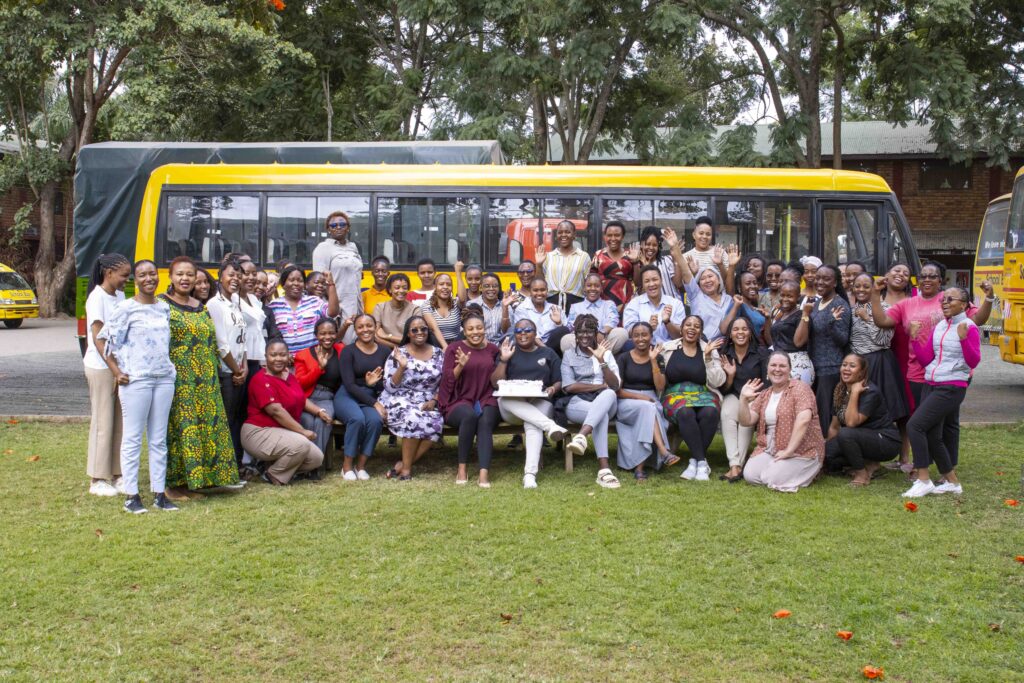
Every year, St Jude’s conducts health checks for its 1,800 students across three campuses to identify any health concerns, monitor existing conditions, and tailor support for those with specific needs. This year’s Health Check team included some familiar faces, with three St Jude’s alumni returning to give back to the very place where their journeys began.
For Nadia, Class of 2019, coming back was a full-circle moment. “It feels special to come back and contribute to the same process that helped me so much,” she says. “I remember the medical professionals from my own health checks when I was a student, and thinking ‘I’d love to do that one day!”
Nadia joined St Jude’s as a Standard 1 student in 2007 and is now in her fifth and final year of a Bachelor of Science in Nursing, which consists of a year doing practical internship at Mount Meru Hospital, not far from St Jude’s Sisia Campus. Despite her demanding schedule, Nadia sought special permission to take two weeks of leave from her program to participate in the health checks, knowing it was an opportunity she couldn’t let pass by.
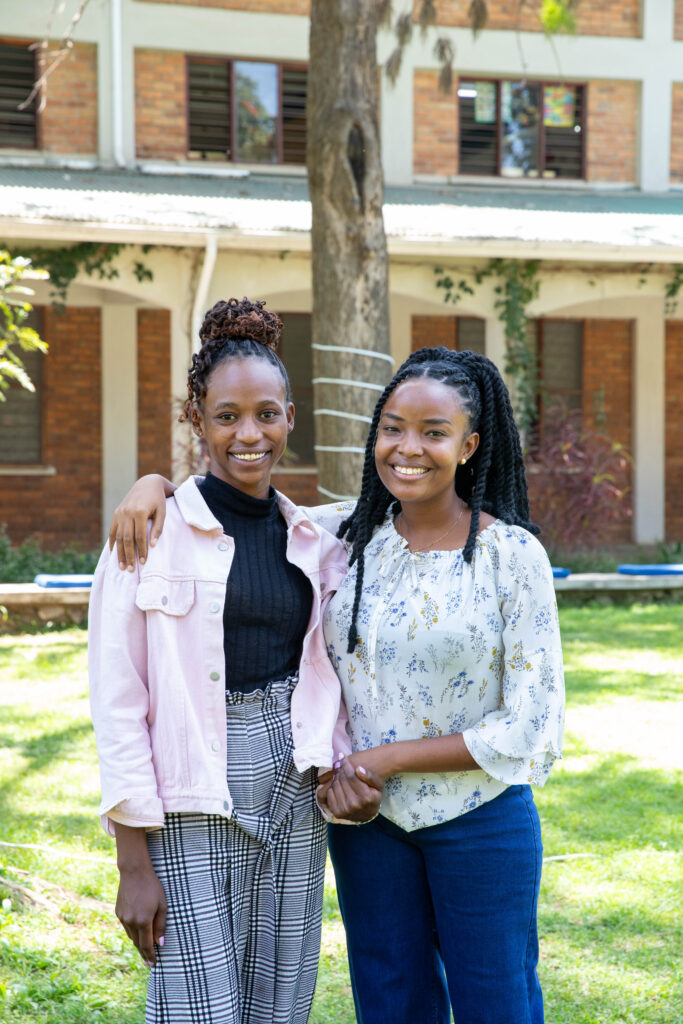
“My internship year is supposed to be uninterrupted, but I was fortunate the hospital team was very supportive and granted me the leave so I could be here,” notes Nadia, who says her passion for pursuing a career in healthcare was forged during her time at St Jude’s.
“I’ve always dreamed of returning to give back, and it’s everything I hoped it would be. I’ve seen students who were in Form 1 when I was in Form 6 who said, ‘Oh Nadia, look at you now!’ and I told them, ‘Everything is possible. You just have to believe in it,’ she says.
Returning alongside Nadia was Erneus, Class of 2020, who vividly recalls his first health check after joining St Jude’s in 2018 as a Form 5 student. “I was so happy as I had never had a check-up like that before. We were advised on how to improve our health, and it was crucial for me. It’s very fulfilling to now be a part of something that helped me in the past.”
After graduating with a degree in Biotechnology and Public Health in 2024, Erneus felt there was no better way to kickstart his career than applying his skills at the place that helped shape his future.
“It’s my first time volunteering in the Health Check team, and I’m learning a lot. It is so rewarding to see the students’ reactions and learn from an international cohort of experts,” says Erneus.
“I have been working in the vision team, helping assess students’ eyesight to identify any issues that could affect their learning ability. If not detected, these issues can grow and start to impact a student’s education, which is why the health checks are so important,” he says.
Like Erneus and Nadia, Winniefreda, from the Class of 2019, also volunteered in the vision team this year. She describes her return to St Jude’s as a homecoming. “I spent so much of my life here,” she says. “Being back feels like coming home. St Jude’s is where I learned and grew, and now I’m able to return the care that I once received.”
In 2023, Winniefreda completed her Bachelor of Nursing and Midwifery. She now works at a hospital in Arusha and doubles as a private nurse, providing home care as part of the government’s clinical nursing program.
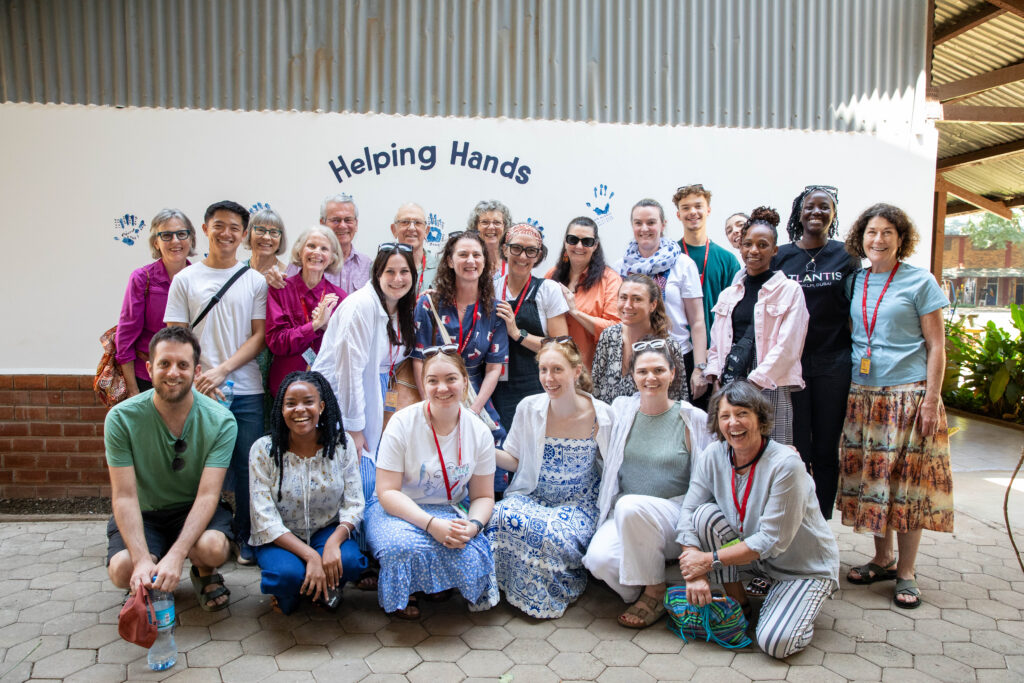
“It’s incredible to see how much the school has grown. What excites me is knowing that we’re helping students who could very well be the next generation of health professionals. Some of the students we helped this year could be in our position in the future. That’s the power of St Jude’s. It always comes back around,” she says.
Nadia, Winniefreda, and Erneus are prime examples of how a St Jude’s education creates a ripple effect, coming full circle to give back to their communities and inspire future generations.
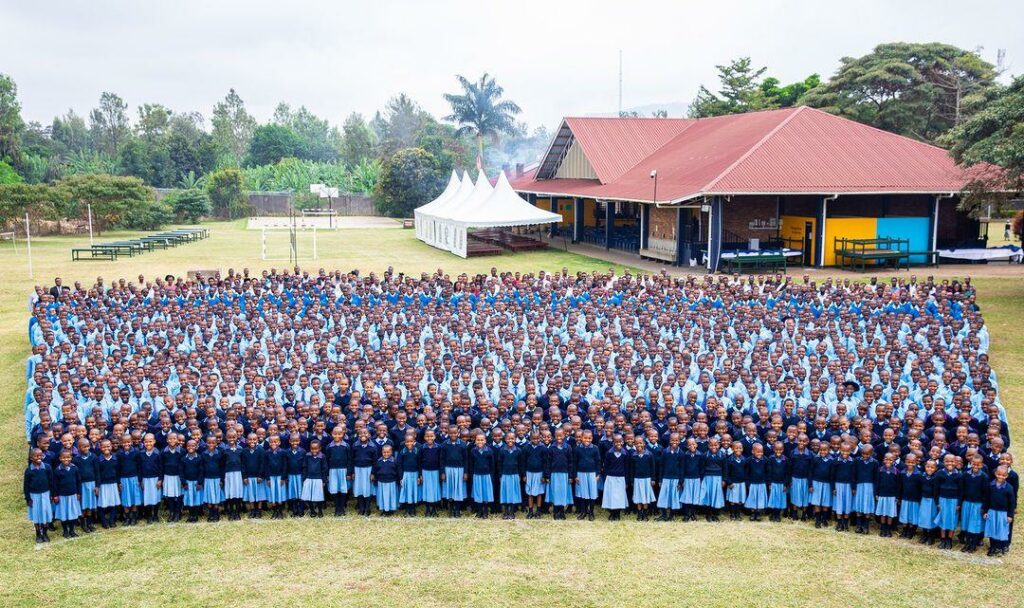
Once a year, the entire St Jude's community of 1,800 students and more than 300 staff gathers on one campus to celebrate St Jude's Day. It is one of the biggest and most anticipated events on the school calendar.
There is a lot to explore about St Jude's Day, so here is a quick look at how we celebrate.
What is St Jude's Day?
St Jude's Day is a special day to honour Saint Jude, the patron saint of desperate and lost causes for whom the school is named.
How do we celebrate it?
Over the years, it has been a tradition to celebrate this day as a community. St Jude’s campuses alternate hosting the celebrations; this year was the Sisia Campus’ turn.
What happens on St Jude's Day?
The day's first activity is taking the annual (whole) school photo. A huge logistical effort, everybody assembles on one of the sports fields to pose for a photo, the students lining up from youngest to oldest. A Thanksgiving mass follows, where students and staff present gifts that will later be distributed to the less fortunate in our local community. Afterward, the school enjoys a community lunch, followed by entertainment and special recognition for staff through the St Jude's Spirit program.
When is the next St Jude's Day?
St Jude's Day is observed annually on 28th October. Next year, St Jude's Day will fall on a Tuesday and be hosted by the Smith Campus. It's a perfect day to visit the school and experience the spirit of
St Jude firsthand from our community.
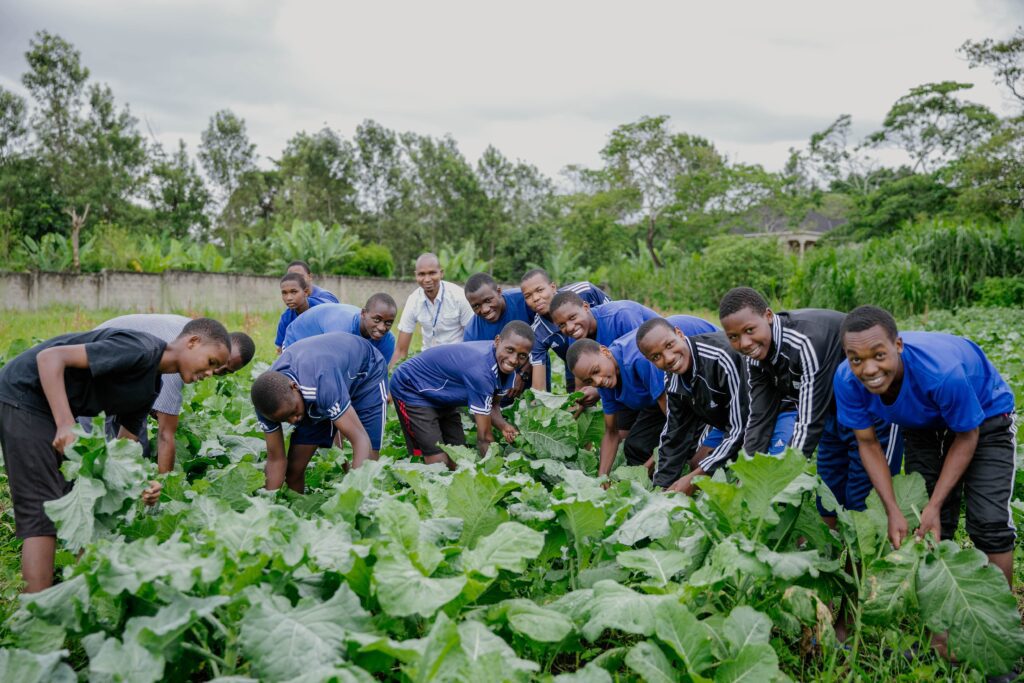
At St Jude's Secondary School, Smith Campus is a plot of land commonly called the school shamba (shamba means farm in Kiswahili). It's one of the most beautiful places on campus, thriving year-round with fresh fruits, vegetables, and livestock. The shamba also serves as a practical learning ground for our students' agriculture lessons and a source of nutritious, homegrown food for the school.
Although the farm is confined within the school walls, it has recently become a new outlet for St Jude's kindness, extending its benefits into the wider community.
"One of the common community outreach activities at school is volunteering to assist at local orphanages during weekends," explains Zuberi, a student at St Jude's Secondary School. "After doing this for a while, two of our schoolmates came up with a brilliant idea to go the extra mile," he adds.
The pair, inspired to make a more tangible impact, conceived an initiative to cultivate vegetables at the school shamba and donate the harvest to special groups of people within the community.
The proposal was well received by the school, and a small piece of land was allocated to the group. Soon, word started spreading around campus, attracting other students to join the initiative.

"I was one of the first volunteers to join the group," recounts Zuberi. "We immediately set to work, dedicating our spare time to bring the project to fruition," he adds.
The group comprises members from different year levels working in rotations, ensuring the farm is not neglected despite their busy schedules throughout the week. The group members consistently dedicate several hours to tending their vegetable garden on weekends and after-school hours. No wonder the farm yields bountiful harvests.
"Everyone is supportive, generously sacrificing their free time and effort for a cause," says Zuberi passionately. "It is truly the spirit of St Jude's in action," he adds. One of the active members of the group is Jastini, a St Jude's student particularly interested in agriculture and supporting children. Jastini comes from an agricultural background and loved farming from a young age. So, when he came across the initiative that supports the less fortunate through the school shamba, he quickly jumped at the opportunity.
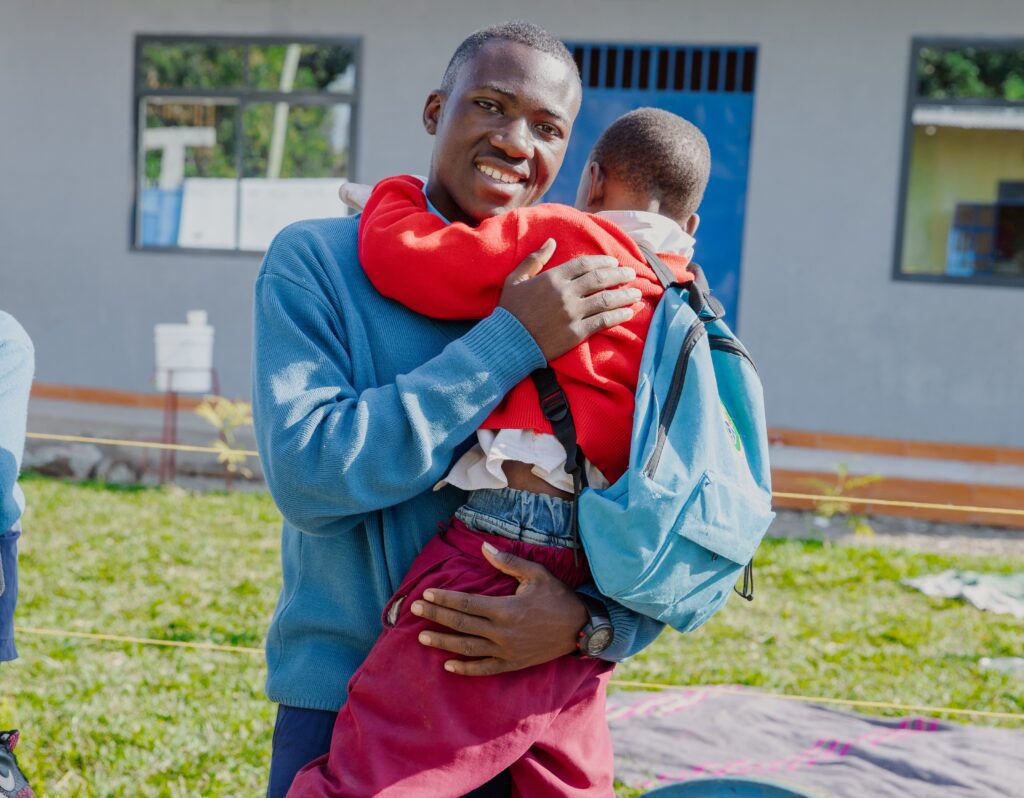
"It's one of those activities that I look forward to whenever I have a few minutes to spare," says Jastini with a smile. "The fact that I get to do something that I enjoy and still impact others is enough motivation for me," he adds.
Though the group is only several months old, they have already harvested over 200 kg of vegetables, most of them going to orphanage centres around Arusha, with the rest supplementing the nutritional needs of students on special diets at school. On their last outing, the group donated fresh vegetables to a nearby orphanage centre in addition to assisting with manual tasks and playing with children.
"Our aim is to help the centres offset their operating costs for food while providing children with essential nutrients for their growth," explains Jastini. "Knowing that we are making a difference in the lives of the children at these orphanages makes all our efforts worth it," he adds passionately.
The St Jude's Spirit Program is a movement that unites our community in performing acts of service anchored on the school values of Respect, Responsibility, Honesty, and Kindness. Through this program, we celebrate and share stories of people who go above and beyond to help nurture Tanzania's future moral and intellectual leaders.
As part of the wider St Jude's community, we invite you to unite with our students, their families, staff, and alumni in the spirit of giving.

Vivian is a student at St Jude's Secondary School and the current Vice Chairperson of the Student Government. She enjoys playing netball, decorating, practising poetry, and reading inspirational books in the school library. Recently, Vivian spent a month at home for the end-of-term school holidays. We caught up with her about her recent holiday and plans for the new year.
In Tanzania, the final two years of secondary school are known as Advanced Level (A Level); Forms 5 and 6. The A Level school year is divided into two parts: the first term runs from July to December and the second term runs from January to June. Students enjoy a month-long break each term's end, in June and December.
How was your holiday?
My holiday was great! I spent time with my parents at home, travelled to visit my grandmother, and attended different workshops and seminars. Time well spent!
What was your favourite holiday activity?
I really enjoyed attending the workshops and seminars. I was a speaker at a youth conference on entrepreneurship and self-awareness. It was a pleasure sharing my knowledge and insights with fellow youth. Another highlight was visiting an orphanage and supporting the children with various items.
Did you learn anything while at home?
I learned some graphics design stuff from a professional. It's a skill that I intend to develop going forward.
What are you most excited about this term?
This is my first term as a Form 6 student (Form 6 is the final year of secondary school in Tanzania). This means we are the oldest students on campus!
What are your big plans for this term?
It's my final year in school, so I want to finish strong and get good grades. I also want to continue building on my leadership and engagement skills and work on becoming a positive influence on my fellow youth.
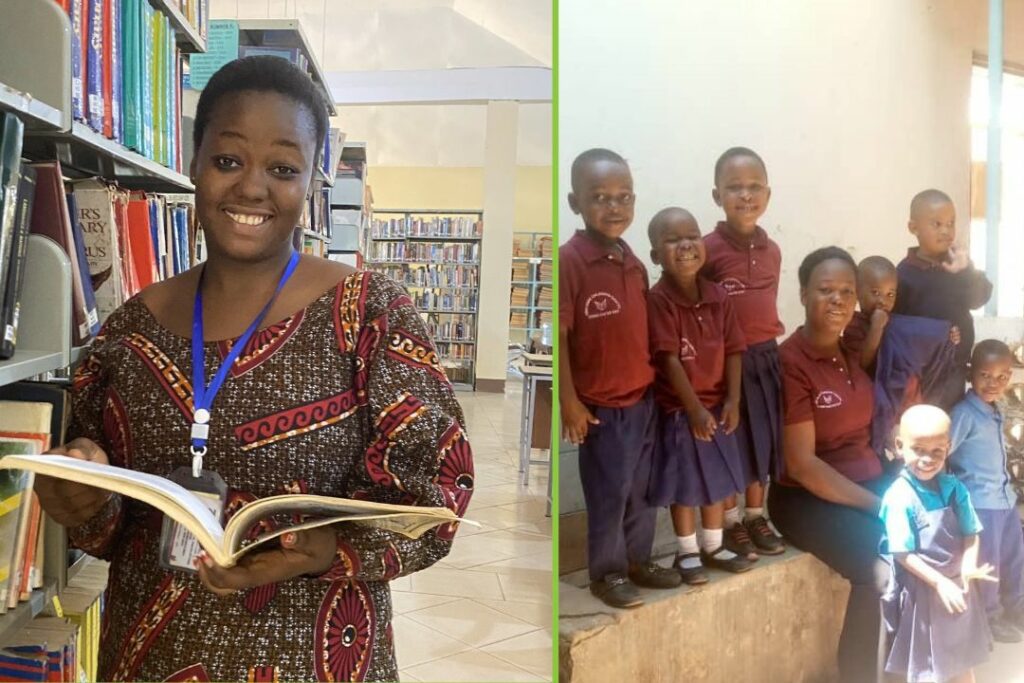
After more than 12 years at St Jude's, Tabitha was ready to embark on her next adventure – pursuing her dreams at university. So, in 2020, 22-year-old Tabitha travelled to Tabora, a town in central Tanzania, for her tertiary studies. But as she soon found, the transition wasn't easy.
"I have always been a big city girl," says Tabitha, who, until this time, had spent her entire life in Arusha, one of Tanzania's biggest cities and a vibrant tourist hub. "Tabora felt small and didn't resemble Arusha at all. My first impression of the place was a little underwhelming," she adds.
Nevertheless, Tabitha embraced the change. Later, she realised that the town's rural, remote setting was the perfect place to put her skills and knowledge to good use.
"In retrospect, Tabora was exactly where I needed to be to make the change I wanted to see," reflects Tabitha. "I've always been passionate about helping special groups within the community; specifically those denied access because of their disabilities."
In just three years, Tabitha went from a novice university student in a new town to an inspiration in the community. She established a reputable nursery and daycare centre that caters to children under the age of seven, including those with disabilities and learning challenges.
"It all started from a deep desire to help children in need, especially those with disabilities," reflects Tabitha. "I noticed that these children were not being taken to school because their parents felt as though they were wasting money. So, I figured there needs to be a daycare in the community where these parents could see their children thriving as much as the other children that go to school," she adds passionately.
Her business started in 2022 with just five students. Tabitha's resolve to make the centre a vibrant and special place for children made it stand out. Her innovative approach to childcare and education, including the use of interactive games, movies, and songs, began making waves in the community. By the end of 2023, the number of children had risen to 20, 10 of whom had already progressed to primary school.
"My best highlight is seeing my students grow in character and academically," says Tabitha proudly. "Students from the centre not only continue to thrive in their primary schools, but they are also setting the bar for academic performance and good behaviour," she adds.
In Tanzania, there persists a negative attitude towards individuals with disabilities, resulting in parents often hiding their children from public view. This deprives them of education and opportunities to socialise with their peers. Tabitha's mission is to bridge this gap and extend educational opportunities to more children with disabilities.
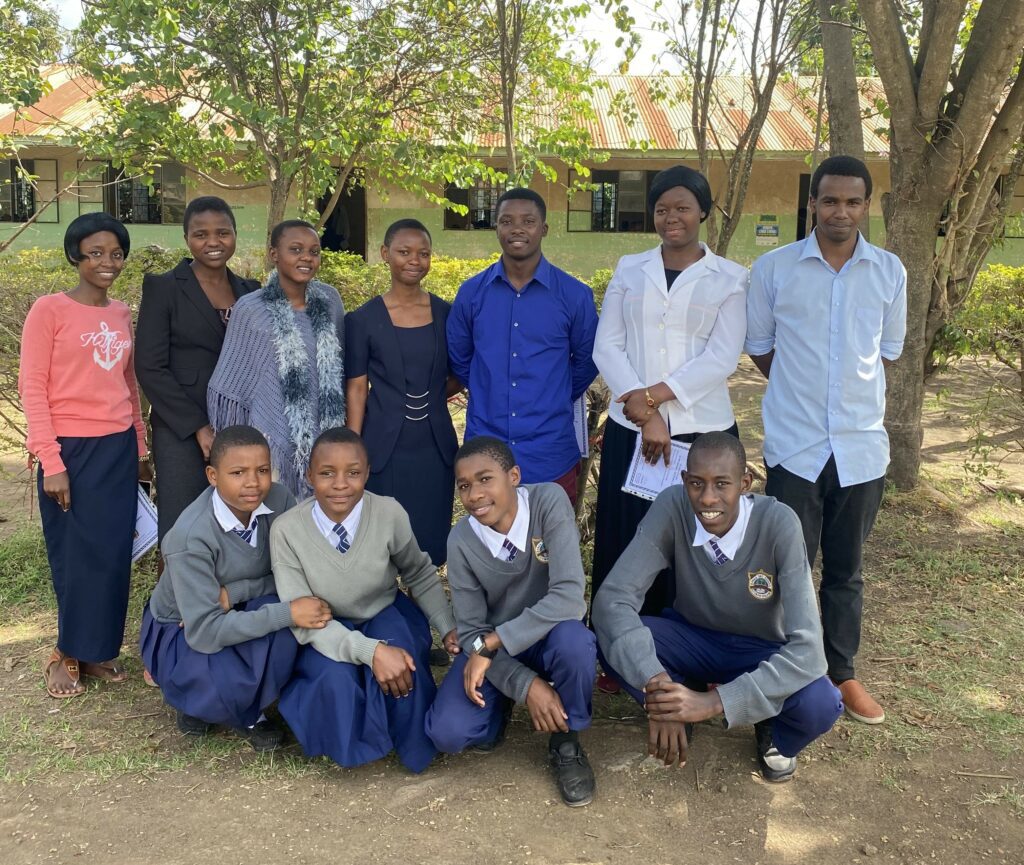
"It's not always easy to convince parents to take their children with disabilities to school," says Tabitha. "But when they see children with similar circumstances at the centre happy and flourishing academically, it becomes easier to break down some of those negative notions associated with them," she adds.
Tabitha is currently in her final year of university, pursuing a Bachelor's degree in Education in Special Needs. She is one of the many alumni from St Jude's putting her skills to good use and impacting the community. Tabitha hopes to use her education to continue breaking down barriers and make education accessible to all children.